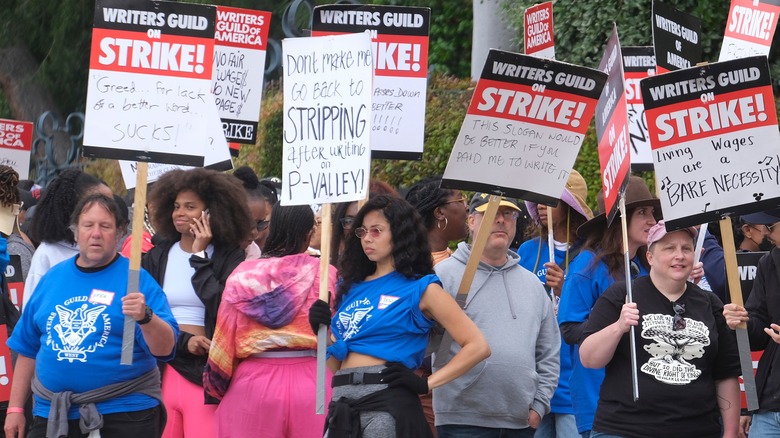'The Passion Tax': How Loving Your Job Makes You More Exploitable
"Do what you love, and you'll never work another day in your life." We've been taught that having a passion for work is the key to success, and that being willing to go above and beyond our responsibilities raises our value at work and opens more career opportunities. But what if passion merely makes us vulnerable to exploitation?
This is the idea behind Duke University's 2020 study, published in the Journal of Personality and Social Psychology, on the passion tax – the cost levied against those who show enthusiasm for their work. The researchers stated in their report that, "although passion may indeed be beneficial in many ways, we suggest that the modern cultural emphasis may also serve to facilitate the legitimization of unfair and demeaning management practices — a phenomenon we term the legitimization of passion exploitation." The specific practices cited were employees getting assigned tasks beyond their scope of responsibilities, being forced to work beyond work hours, and not getting paid fairly, if at all.
Labor issues have been coming to a head ever since the pandemic changed the way most people work. From the Great Resignation wave of 2021 to the growing unionizing efforts across industries, more workers are realizing how employers have been undervaluing their labor. They're becoming more aware of how showing dedication to their work has been manipulated by companies to make them take on additional loads without proper compensation.
A tax levied across different sectors
Passion tax is not limited to a specific industry. Correlating one's life purpose with work is deeply ingrained in American culture. NPR reported how financial and job security were the primary career considerations during the 1940s and '50s but was replaced by identity-driven and identity-based fulfillment from the '70s until the '90s. However, increased outsourcing in the early 2000s and then the 2007-2008 global financial crisis led to a decrease in available long-term, stable jobs. The shaky job market facilitated the creation of the gig economy, which became the foundation of the side hustle culture that has people monetizing their hobbies and working (or looking for work) beyond the traditional 9-to-5 schedule.
This mindset remains prevalent among students and college-educated workers, as sociologist Erin Cech discovered while writing her book, "The Trouble With Passion." Cech explained in The Atlantic that those who believe in doing what they love will use that passion to help maintain their happiness and sense of well-being even when working long hours.
An individualistic solution to systemic problems
However, not everyone can afford to put stock in this belief. Successful people often laud having passion for work as a powerful factor that overcomes any obstacle. Remember Steve Jobs' advice to Stanford University's graduating class of 2005? "[The] only way to do great work is to love what you do. If you haven't found it yet, keep looking. Don't settle." While this is easy to follow for those with resources to pursue what they love and have a safety net to fall back on, it is a costly risk for those who have neither.
It also presents passion as an individualistic solution to a systemic problem — that essentially, if someone isn't accomplished in their career, it's simply because they're not driven enough to succeed. "It helps culturally legitimize an underpaid and overworked white-collar labor force while reinforcing class, race, and gender segregation, as well as financial inequality," Erin Cech explained to Fast Company.
This also applies to blue-collar workers. They may genuinely find meaning in doing manual labor but many are also simply trying to make ends meet. Their reliance on their jobs makes them exploitable too, especially when they buy into the idea that their hard work will eventually be rewarded.
Passion as a job requirement
Tying one's life purpose with work also normalizes how workplaces exploit their employees' work ethic and enthusiasm. How many job openings include "passion" and its many iterations in their requirements? Companies looking for employees who'll take on more responsibilities for no additional pay would value an applicant's eagerness to go above and beyond as much as their competency. Unfortunately, there's no lack of workers who are affected by this passion tax, where fulfilling work is prioritized over stability and financial security. This further perpetuates the labor market's longstanding issues of inequality and abuse.
"It is scary to think that when we see someone in a bad work situation, our mind may jump to the conclusion that they must be passionate about their work," Troy Campbell, a participating researcher in Duke's passion tax study, told the Fuqua School of Business. The hustle mindset, which remains pretty strong on social media, doesn't help, with people still praising the rise-and-grind lifestyle popularized by the Silicon Valley work culture. Campbell warned, "While not always factually incorrect, this [perception] may serve to legitimize instances of mistreatment." Such is the case in the visual effects industry where grueling hours of unpaid work have long been the norm.
Diversify your sources of fulfillment
To be clear, loving your job isn't inherently bad; it's incredibly fulfilling to do work you find meaningful. But valuing it more than other, equally important aspects of your life — your time, health, hobbies, and personal relationships — leaves you exposed to a capitalist system intent on squeezing the most out of the workforce at the lowest cost. "[Our passion tax research is] simply a warning that we should not let the current cultural emphasis on finding passion in our work be co-opted by the human tendency to legitimize or ignore exploitation," Jae Kim, the Duke University report's lead author, explained to Duke University's Fuqua School of Business.
Recognizing how deeply ingrained this tendency is can raise your awareness of when and how your workplace is "charging" you with a passion tax. Know that excessively loving your job is a one-sided relationship that'll cause you serious self-image repercussions should it end, typically at the employer's behest. Although they feed into each other, your passion isn't a measure of your worth.
Make your approach to passion more holistic instead. Intentionally channel it into non-work interests to balance the hours and effort you pour into your job. That way, you create space for finding healthier sources of fulfillment and self-expression.
Addressing the wider problem
Freeing yourself from paying the passion tax starts on a personal level but ensuring widespread protection for all workers requires collective effort: from employees, employers, and, for younger generations, from parents and mentors. Quiet quitting or "acting your wage" is merely an individualistic, short-term solution. Fostering bigger discussions about the overt and insidious ways industries abuse employees is more effective. It leads to communities proposing equitable, long-term solutions to deeply entrenched unfair labor practices. There's a precedent for this already: the long history of unionization in America. Organizing also pushes the government to legislate better labor practices. If not for generations of workers organizing to demand changes in their industries, seven-day workweeks, child labor, and other abusive policies would remain legal today.
Collective action develops trust between colleagues too. Knowing that you are all looking out for each other can make the workplace feel safer and more supportive, whether the actual work is drudging and/or difficult. The ongoing Writers Guild of America (WGA) strike, for example, earned support from the Screen Actors Guild (SAG-AFTRA) whose members also want fair compensation from streaming profits and protection against the potential abuse of artificial intelligence against creative talents. This show of solidarity could force studios and streaming companies to compromise with both unions and effect industry-wide improvements that would also benefit non-creative entertainment-adjacent workers.
Remember: It is great to find purpose in your job but it shouldn't crush your soul in the process. There's more to life than work.





